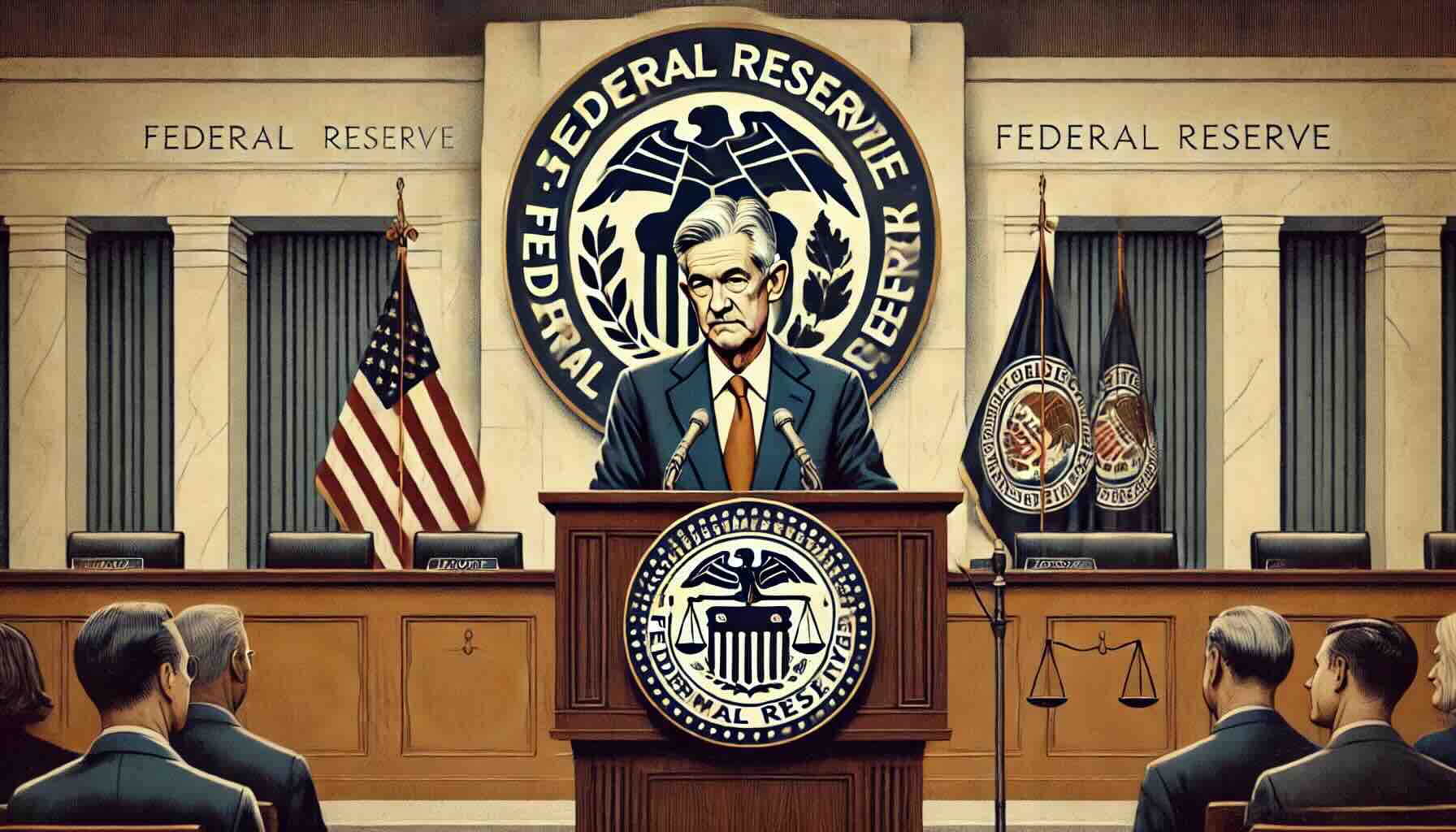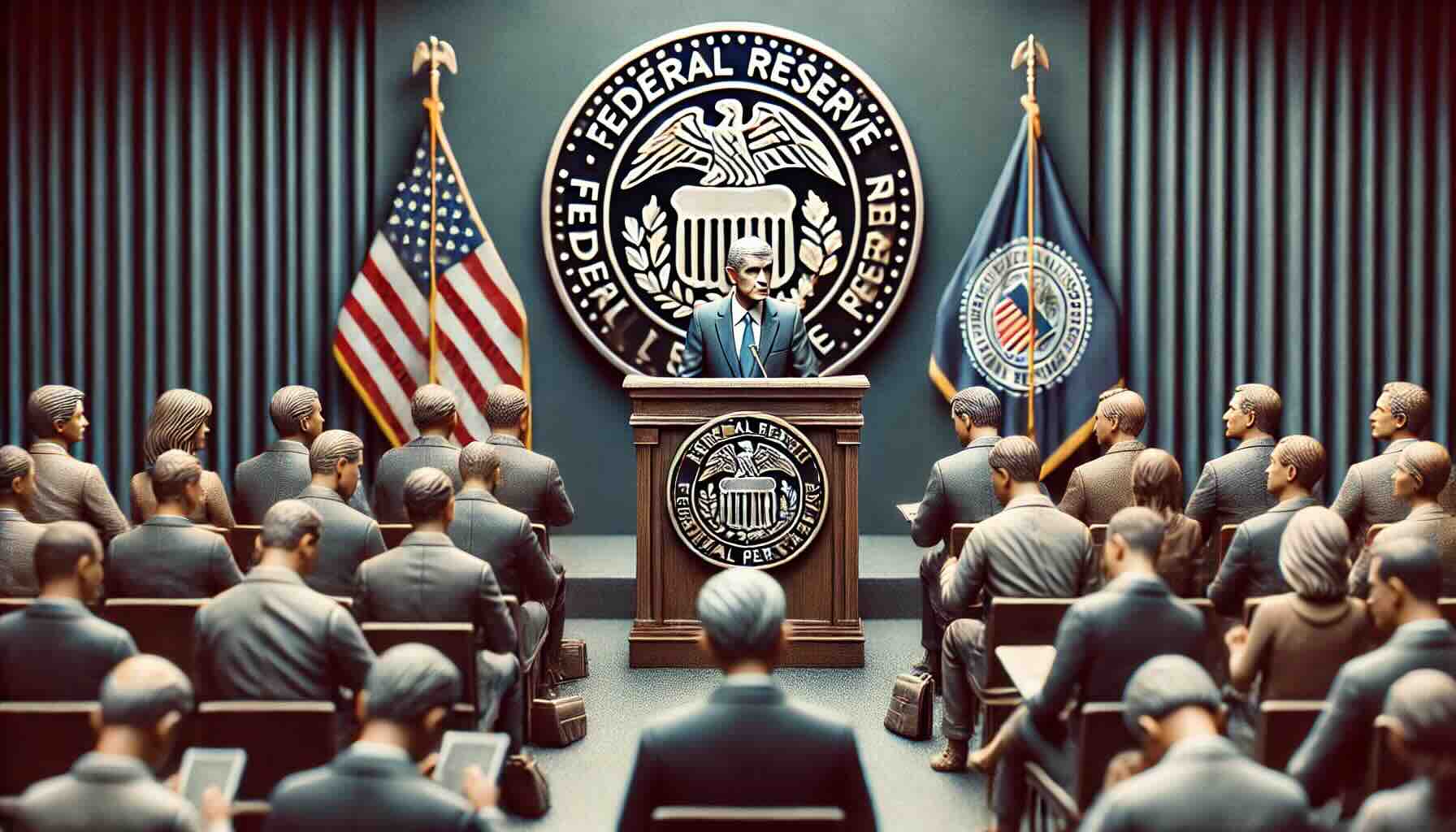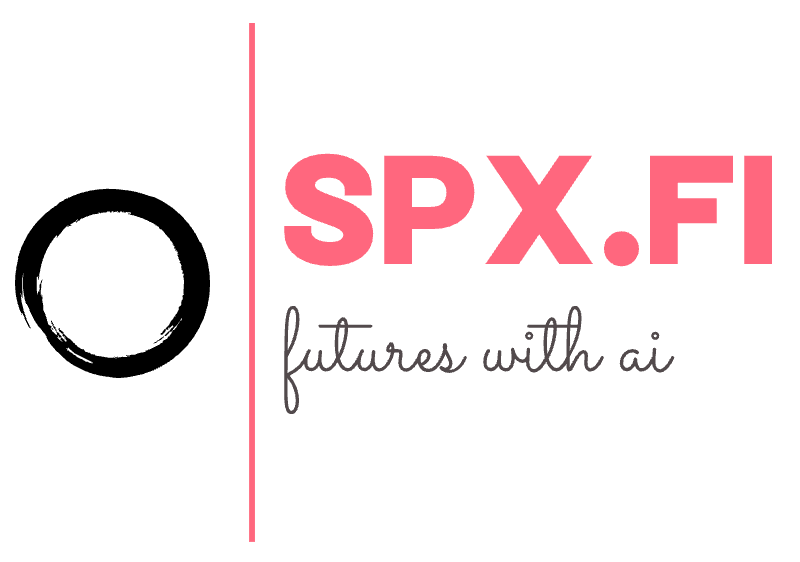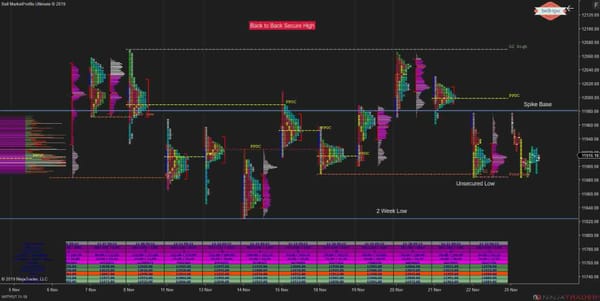Insights from the FOMC Press Conference: Key Takeaways from Chairman Powell's Address
FOMC's cautious approach, highlighted by Powell, underscores data dependency, market expectations, and a commitment to non-political decisions.

Chairman Jerome Powell has addressed a press conference after the release of the Federal Open Market Committee's statement, providing critical insight into the current readings at the Federal Reserve and what its future actions could be. Key takeaways from the post-meeting press conference reiterate a careful but data-driven Fed approach toward monetary policy resetting, particularly in terms of possible rate cuts.
The Fed Stance on Rate Cuts
At the press conference, Powell reiterated that the approach toward future rate decisions would be data-dependent. He further clarified that no decision had been made about rate cuts at the upcoming September meeting.
Powell said, "The broad sense of the committee is that the economy is moving closer to the point at which it will be appropriate to reduce our policy rate. In that we will be data-dependent but not data point dependent.".
Economic Conditions and Projections
Powell spoke about the economy at present—one that has seen significant improvements in inflation and a sturdy Labour market.
Powell said, "What we're seeing is strong economic activity and a good labour market with inflation coming down".
In spite of such favourable pointers, the Fed is still watchful and will be very careful. He added that although there is a heightened belief in the outlook for the economy, it's not ready to bind itself to certain actions without more data.
Market Expectations and Communication
The press conference covered market expectations and the Fed's communication strategy.
Powell did acknowledge the challenges of forward guidance, where Powell said, "Forecasters have been continually surprised by the strength of the economy. So we have to be pretty humble about giving forward guidance".
This argues for a balancing act by the Fed in managing market expectations while staying agile in policy decisions.
Potential Rate Cut Scenarios
The central banker was asked whether a rate cut likely in September, to which Powell—now—at this juncture, emphasized the role of complete data.
Powell said, "If we do get the data that we hope we get, then a reduction in our policy rate could be on the table at the September meeting".
This tempered optimism—though unmistakable—is consistent with the Fed's measured disposition toward any action, making sure that it is supported by indicators.
Dealing with the concerns of recession
He also reacted to the concerns of former New York Fed President Bill Dudley about the possible risk of a recession.
Accusations that the Fed was behind the curve he dismissed, pointing out current data show neither an overheating nor sharply weakening economy.
Powell reassured, "We don't see any reason to think that this economy is either overheating or sharply weakening.".
Conclusion
The FOMC announcement press conference underscored that the view from the Federal Reserve on the economy was one of cautious optimism. The chairman reiterated in unmistakable terms how decisions are data-driven and the Fed seemed willing to do everything to keep the economy stable.
Now, with the September meeting around the corner, all eyes will be on the incoming economic data for clues about the Fed's next move.
How did SPX, NDX and DOW perform after FOMC meeting?
All three indices moved upward at the beginning: SPX, NDX, and DOW, following the FOMC meeting on July 31st. The Fed had expected interest rate hikes to be enthusiastically received by Chair Powell.
They market gave back most of their gains on August 1st as investors were considering the implications of the Fed's future policy decisions. Market sentiment is still cautious over concerns about inflation and further possible rate increases.
Press Question on Trump and Powell's Response
Question on Political Influence and Rate Cuts
Press: "You have consistently said that the Fed does not consider politics in making decisions. With a possible September rate cut on the table, it would be less than two months before the election and former President Trump reportedly said that cutting rates so close to the election is something the central bank knows they shouldn't be doing. What's your response? And do you believe it's possible to really remain apolitical with a September rate cut?"
Powell: "I absolutely do. And I think it's, first of all, we haven't made any decisions. I would say it this way: I haven't made any decision about any future meeting. I don't know what the data will reveal or how that will affect the appropriate path of our policy. I really don't know. I do know how we will make that assessment.
That's what I do know. So if you take a step back, the current situation again, is inflation has come down much closer to a goal. And that's happened while unemployment has remained low. We're very tightly focused on using our tools to try to foster that state of affairs continuing, that's at each of our meetings and all of our decisions are focused strictly on that and really on nothing else.
Doing our part, whatever that part may be. You know, we're using our best thinking, we're doing our best to understand the economy, we follow academics, we follow the many commentators who bless us with their commentary but we don't change anything in our approach to address other factors like the political calendar with Congress. We believe ordered us to conduct our business in a non-political way, at all times, not just some of the time.
I'll say this too: We never use our tools to support or oppose a political party, a politician, or any political outcome. The bottom line is, if we do our very best to do our part, and we stick to our part, that will benefit all Americans. If we get it right, the economy will be stronger".
The response emphasizes the Federal Reserve's commitment to making data-driven decisions rather than considering political factors, he further emphasis on the non-political nature of the Fed's operations reassures the public and markets that the central bank remains focused on managing inflation and supporting employment.

Key Questions Posed by the Press and Powell's Response
Question 1: Market Expectation for a Rate Cut
Press: "The markets pretty much entirely expect a rate cut in September at this stage. I wonder if you think that's a reasonable expectation? And if so, why not just make the move today?"
Powell: "We have made no decisions about future meetings, and that includes a September meeting. The broad sense of the committee is that the economy is moving closer to the point at which it will be appropriate to reduce our policy rate. In that we will be data dependent but not data point dependent".
Question 2: September Rate Cut Baseline Case
Press: "With inflation behaving as you expect, would you probably regard a rate cut in September as the baseline scenario, in a way, at the moment?"
Powell: "I guess I would think about it this way."
Question 3: Forecasters and Economic Surprises
Press: "Forecasters have been continually surprised. By, for example, the strength of the economy last year. How do you address this in your forward guidance?"
Powell: "We have to be pretty humble about giving forward guidance. We need to be careful about that all the time. When you say you're going to be data-driven, it's going to be data about outlook and risks balance. Nobody has great vision deep into the future".
Question 4: Likelihood of a Rate Cut in September
Press: "There is an increasing sense of confidence that you would be able to move at the next meeting as soon as inflation emerges. Is that likely?"
Powell: "Provided the overall everything-overlook-the bad data support it. Absolutely no question whatsoever. We believe it's getting to be about time. If the data comes in as we expect, a cut in our policy rate could actually be on the table at the September meeting".
Question 5: Bill Dudley Op-Ed
Press: "Former New York President Bill Dudley wrote an op-ed in Bloomberg in which he said it might already be too late to fend off a recession by cutting rates. Is he wrong?"
Powell: "I think the reality is that forecasters, not just the Fed, have been continually surprised by the strength of the economy. We have to be humble and data-driven. Nobody has great vision deep into the future.".
Question 6: Risks of a Hard Landing
Press: "Has the risk of a hard landing gone up?"
Powell: Speaking on the matter, Powell said, "I don't know whether they've increased. I think they're low. The data show a strong labor market, and overall, a strong economy. We are watching to see which way the economy heads, and if we need to respond to weakness, we are well-equipped to do that".
Question 7: Pre-emptive Rate Cuts
Press: You mentioned not wanting to see further cooling in the job market. Would you consider pre-emptive cuts to prevent unexpected cooling?"
Powell: "We have made real progress on inflation and have growing confidence. We are factoring both the labor market and inflation into our policy. We need to see more data before making such decisions" (Powell, 2023).
Question 8: Should We Cut 50 Basis Points
Press: "Is a 50 basis point cut as a first cut at all likely or even on the table?"
Powell: "I don't want to say no and be specific about what we're going to do. But that's not something we're thinking about right now. We haven't made any decisions at all, as of today".
These key questions and responses underline the data-driven approach, cautious optimism, and readiness to adapt based on economic indicators.
Question 9: On Dissenting Votes
Press: "There hasn't been a dissenting vote on an interest rate decision in some time. If the data do evolve as you expect, if you do have more confidence by the September meeting, do you get the sense that there will be a unanimous vote on interest rate move in September? Or are there meaningful differences in committee members' assessments of how much more confidence is needed?"
Powell: "There are always meaningful differences. We talk a lot before, during, and after the meeting. We do have a very robust discussion of these things. You're right that in most cases, people, if they feel heard and feel that their position has been given serious consideration, for most people, most of the time, that's going to be enough" (Powell, 2023).
Question 10: On Economic Forecasts and Political Plans
Press: "Do your economic forecasts and models take into account the two very different economic plans of these two presidential candidates Harris and Trump, and if so, how?"
Powell: "We'll have price stability, people will find jobs, wages will rise in real terms. Everyone will benefit. So that's what we believe. And that's how we will always act. This is my fourth presidential election at the Fed. I can tell you, this is how we think about it. This is what we do. Anything that we do before, during, or after the election will be based on the data, the outlook, and the balance of risks. And now more than anything else".
Question 11: On Balancing Risks
Press: "Is there a growing sense of confidence that you could move at the next meeting as soon as inflation comes?"
Powell: "Assuming that the totality of the data supports such an outcome. No question that that is the case. We think the time is approaching. If we get the data that we hope we get, then a reduction in our policy rate could be on the table at the September meeting.".
Question 12: On Recession Risks
Press: "Former New York President Bill Dudley wrote an op-ed in Bloomberg earlier this month, which you probably saw, in which he said it might already be too late to fend off a recession by cutting rates. Dawdling now unnecessarily increases the risk. Is he wrong?"
Powell: "I think the reality is that forecasters, not just the Fed, have been continually surprised by the strength of the economy. We have to be pretty humble and data-driven. Nobody has great vision deep into the future.".
Question 13: On the Chances of a Hard Landing
Press: "Have the chances of a hard landing increased?"
Powell: "I don't know whether they've increased. I think they're low. The data show a strong labor market and overall, a strong economy. We are watching to see which way the economy heads, and if we need to respond to weakness, we are well-equipped to do that. But that's not what we're seeing. What we're seeing is strong economic activity, a good labor market, and inflation coming down" (Powell, 2023).
Question 14: On Potential Delay in Action
Press: "Could the Fed be behind the curve because you said some of the reports last meeting you said the reports could be noisy or overstated? Was there a discussion of what kind of discussion was there for a cut today? And could the Fed be behind the curve?"
Powell: "The objective is to balance the two risks, right? It's the risk of going too soon and the risk of going too late. We've had seven months of good inflation data at the end of last year. We said we wanted to see more. Now we've got another quarter that is good. We're balancing the risk of going too soon against the risk of going too late. There was a real discussion back and forth of what the case would be for moving at this meeting. A strong majority supported not moving at this meeting, but it’s a conversation that we had today" (Powell, 2023).
Question 15: On Clarity of Reaction Function
Press: "In the minutes of the June meeting that came out a few weeks ago, there was a discussion about communications and some Fed officials said maybe the Fed wasn't as clear enough about its reaction function. Commentators say they really don't have a sense of what is going to judge maybe not the first cut but the pace of the cuts going forward. Is there anything you can say like, how will we judge that?"
Powell: "I think the reality is that forecasters, not just the Fed, have been continually surprised by the strength of the economy. So we have to be pretty humble about giving forward guidance. When you're saying you're going to be data driven, it’s about how the data affect the outlook and balance of risks".
Related Links - Interesting Read
The following is a list of related and credible links dealing with the FOMC announcement, these are all interesting reads:
Does Spending Slide When COVID-19 Surges?
- Authors: Joel A. Elvery, M. Oles
- Abstract: This proves that according to the state-level statistics, the economic impact resulting from COVID-19 waves waned with time.
- Link: Does Spending Slide When COVID-19 Surges?
A bad moon rising? Uncertainty shocks and economic outcomes
- Authors: Laura E. Jackson, Kevin L. Kliesen, Michael T. Owyang
Abstract: This paper examines how uncertainty affects the course of economic and financial market results and policymaker responses. - Link: A Bad Moon Rising? Uncertainty Shocks and Economic Outcomes
What Does Jerome Powell Know that William McChesney Martin Did Not—And What Role Did Academic Research Play in that?
- Author: A. Blinder
- Abstract: Keynote lecture on the evolution of monetary policy understanding and the role of academic research.
- Link: What Does Jerome Powell Know that William McChesney Martin Did Not
FOMC Announcement Event Risk
- Authors: M. Johannes, Andreas Kaeck, Norman J. Seeger
- Abstract: This study deals with the risk associated with FOMC announcements. - Link: FOMC Announcement Event Risk
Corporate Bonds Distress and FOMC Announcement Returns
- Authors: Tommaso Baglioni, Ruy Ribeiro
- Abstract: This paper analyzes the linkage between corporate bond distress and the returns of FOMC announcements.
- Link: Corporate Bonds Distress and FOMC Announcement Returns
Whenever necessary, these references will serve as reliable points to obtain information and understanding regarding the issues of FOMC announcements, the economic outlook, and Jerome Powell's press conferences.




